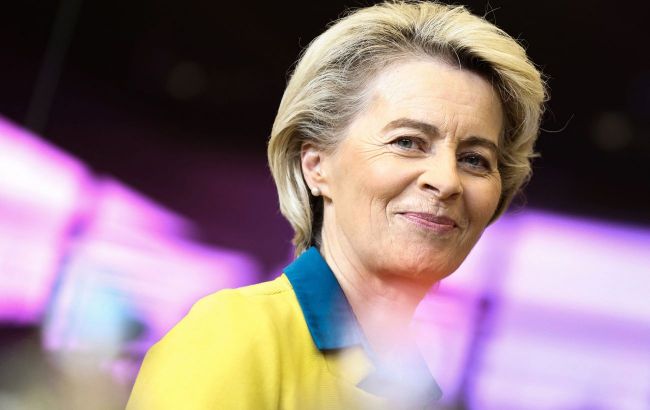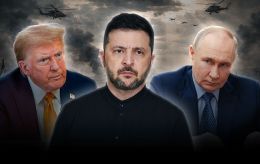'We must put more pressure on Russia to secure a real ceasefire,' EU Chief says
 Photo: European Commission President Ursula von der Leyen (Getty Images)
Photo: European Commission President Ursula von der Leyen (Getty Images)
More pressure must be exerted on Russia to achieve a ceasefire in Ukraine, and the G7 countries need to strengthen sanctions to help make that happen, Reuters reports, citing European Commission President Ursula von der Leyen.
Leaders of the world's biggest democracies are meeting in Canada, aiming to keep US President Donald Trump focused on the war in Ukraine despite renewed hostilities between Israel and Iran.
The EU is preparing a new sanctions package against Russia but has so far failed to convince Trump, who has been reluctant to impose further restrictions. Trump has said he doesn't want sanctions to get in the way of negotiating a ceasefire with Vladimir Putin.
"We must put more pressure on Russia to secure a real ceasefire, to bring Russia to the negotiating table and to end this war, sanctions are critical to that end," von der Leyen said at a press conference.
The European Commission President added that last week the European community proposed an 18th package of sanctions. "I will invite all G7 partners to join us in this endeavour," von der Leyen stated, ahead of talks with the UK, Canada, France, Germany, Italy, Japan, and the US.
Geoeconomics and geopolitics
Global attention has shifted to the Middle East, where Israeli strikes on Iran have raised the risk of a broader regional conflict. The resulting oil price spikes have intensified concerns over the global economy.
Von der Leyen noted that the G7 summit would be shaped by both geoeconomic and geopolitical dynamics. She said that during discussions with Trump, they agreed that like-minded countries must ensure market stability, especially in energy.
"We will also stay very vigilant (on) what the implications for the international energy markets are concerned," the European Commission President said.
Regarding trade talks with the Trump administration, Von der Leyen expressed preference for a negotiated solution before the July 9 deadline, though the EU is preparing retaliatory steps in case no deal is reached.
On economic strategy, she emphasized that Europe will advocate for stable, predictable trade among partners.
"Our focus must be on a G7 response to harmful trade practices that aim to undermine our economies. Economic security remains the top shared concern for all G7 members," the European Commission President added.
Israel-Iran war
Von der Leyen affirmed Israel's right to self-defense, while emphasizing that a diplomatic solution remains the best long-term option for addressing Iran's nuclear program.
"Iran is the principal source of regional instability, and we've always been very clear, Iran can never have a nuclear weapon," the European Commission President said.
"The recent events have underlined the increasing interlinks between the conflicts in Europe on one hand and the Middle East on the other hand. The same type of Iranian designed and made drones and ballistic missiles are indiscriminately hitting cities in Ukraine and in Israel," Von der Leyen concluded.
Meanwhile, most G7 countries are prepared to lower the price cap on Russian oil, even without US support. The EU and the UK are ready to lead the initiative and act independently.
For more details on the G7 summit, read our material on the topic.

